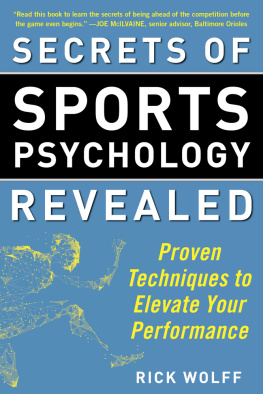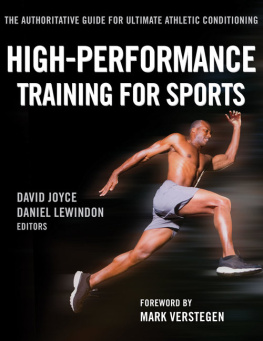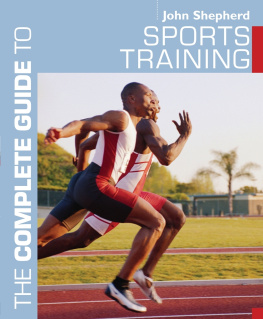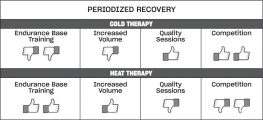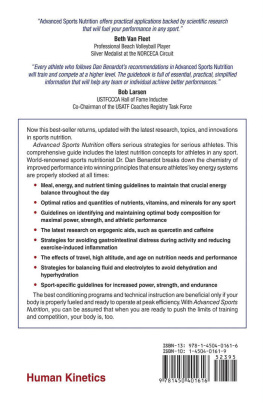Contents
Guide
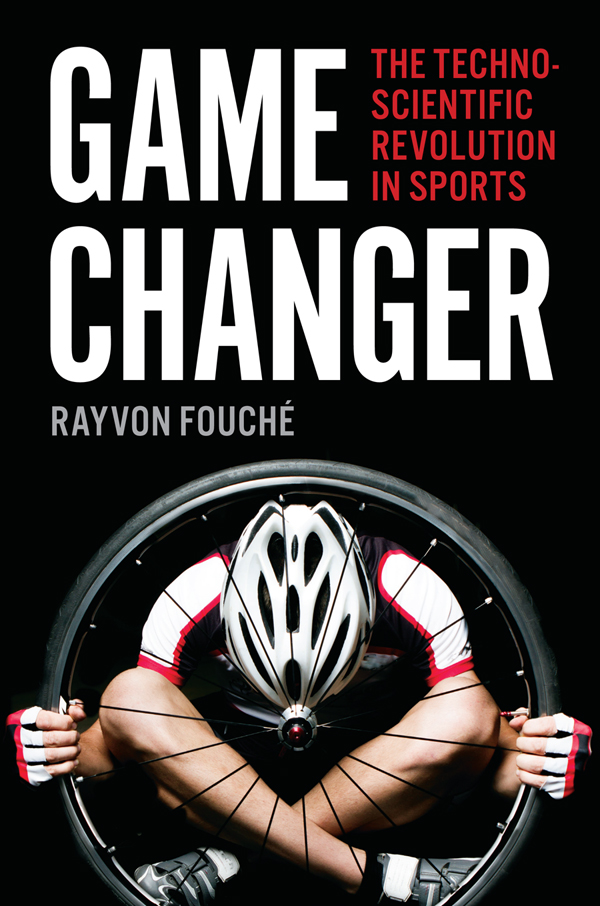
GAME CHANGER
GAME CHANGER
The Technoscientific Revolution in Sports
RAYVON FOUCH
JOHNS HOPKINS UNIVERSITY PRESS BALTIMORE
2017 Johns Hopkins University Press
All rights reserved. Published 2017
Printed in the United States of America on acid-free paper
9 8 7 6 5 4 3 2 1
Johns Hopkins University Press
2715 North Charles Street
Baltimore, Maryland 21218-4363
www.press.jhu.edu
Library of Congress Cataloging-in-Publication Data
Names: Fouch, Rayvon, 1969 author.
Title: Game changer : the technoscientific revolution in sports / Rayvon Fouch.
Description: Baltimore : Johns Hopkins University Press, [2017] | Includes bibliographical references and index.
Identifiers: LCCN 2016028462| ISBN 9781421421797 (hardcover : alk. paper) | ISBN 9781421421810 (electronic) | ISBN 1421421798 (hardcover : alk. paper) | ISBN 142142181X (electronic)
Subjects: LCSH: SportsTechnological innovations. | SportsPhysiological aspects. | Performance technology. | Doping in sports. | Sports sciences.
Classification: LCC GV745 .F68 2017 | DDC 688.7/6dc23
LC record available at https://lccn.loc.gov/2016028462
A catalog record for this book is available from the British Library.
Special discounts are available for bulk purchases of this book. For more information, please contact Special Sales at 410 -- 6936 or specialsales@press.jhu.edu.
Johns Hopkins University Press uses environmentally friendly book materials, including recycled text paper that is composed of at least 30 percent post-consumer waste, whenever possible.
Contents
Acknowledgments
Books often have convoluted origin stories. This book began some time back in the early 1990s on rural roads in central Illinois guarded by tall corn and much shorter soybeans. Thousands of miles of suffering in silence, through wind, rain, heat, and snow with the same small group of people, gave me plenty of time to wonder about the world in unusual ways. Though it took many years to return to technology and sport, I have always been interested in the pair.
At the conclusion of this writing, I have more intellectual debts than I can ever attempt to repay. Much of the book and most of my scholarly work seeks to think through Langdon Winners timeless question, do artifacts have politics? For me, his question has morphed into: (1) How do objects create social and cultural meaning for individuals and communities? and (2) How do people endow and embed social and cultural meaning within objects? His question is still fresh and exciting. Thanks, Langdon.
I presented portions of this project at a host of venues. A heartfelt thanks goes to the audiences at Boston University, Carnegie Mellon University, the Chicago Humanities Festival, Cornell University, the IDSA Central District Design Conference, Kendall College of Art and Design, Morrisville State College, National University of Defense Technology (Changsha, China), Osaka City University (Osaka, Japan), Purdue University, Tsinghua University (Beijing, China), University of CaliforniaBerkeley, University of IllinoisUrbana-Champaign, and University of Michigan. Their engaged comments profoundly shaped this book, and I will be forever grateful.
As I drafted this book, I have had the pleasure to research and teach at the Rensselaer Polytechnic Institute (science and technology studies), the University of Illinois (Center for East Asian and Pacific Studies, History, and Information Trust Institute), and most recently Purdue University as director of the American Studies program in the School of Interdisciplinary Studies. In each place, I found kind, generous, and thoughtful students, faculty, and staff who made this entire endeavor possible. I extend my deepest gratitude to you all.
I have been fortunate to have supportive friends, colleagues, and family members spanning all parts of the globe. They have always embraced the perplexing questions I ask of the world. I am indebted to you all.
Finally, I thank my wife, Sharra Vostral, and my son, Eads. They have both lived every word on each page. Their presence continually makes life extraordinarily beautiful. Thank you for your time and patience. Much love to you both.
GAME CHANGER
INTRODUCTION
Sports, Bodies, and Technoscience
Its the motor, not the machine. As a competitive cyclist in the late 1980s through the mid-1990s, I came to speak this phrase regularly. It became a familiar mantra that my compatriots and I would systematically repeat. Put simply, this saying means that ones bodythe motoris vastly more important than any technoscientific device, pharmaceutical treatment, or psychological conditioning in the final outcome of a cycling race. In hindsight, I repeated this phrase to others and myself out of my own hubris, ignorance, and, most importantly, denial. This overly self-confident utterance by an aspiring twentysomething athlete should not come as a shock because a large part of elite competitive sport is about sustaining an unwavering, and often illogical, belief in oneself. It is a belief in the superiority and infallibility of ones body that undergirds this way of thinking. The body is potentially the only aspect of an athletic competition that an athlete can control completely. When the game gets tough, the body and the mental and physical training absorbed by it will, one hopes, carry one through to triumph. This ideal centers on the belief that when all else fails, the motor will transcend all and deliver an athlete to victory. Thus, it should not come as a surprise that the phrase its the motor, not the machine mollified insecurities, inspired confidence, and supplied motivation to carry on, even when chances for success grew ever slimmer. The growing popularity of this phrase among cyclists, and
One of the major aims of this book is to investigate how sporting communities respond to the uncontrollable unknowns that emerge from the inseparable interweaving of science and technology, or, more accurately, technoscience. In my case, as much as I attempted to push the technoscientific out of my consciousness, I was fully aware that technoscientific objects, practices, and procedures played a role in the final outcomes of races. By the 1990s, cycling, like most other sports, experienced a technoscientific explosion ranging from lightweight composite materials like carbon fiber to stretchy wind-cheating fabrics like elastane. Also during this period, sport began to embrace the scientific rigor that physicians, psychologists, and scientists brought to training, nutrition, and competitive preparation. These technoscientific pathwaysjust like in the broader societyprogressed at a quickening and uncomfortable pace. Athletes like myself began to wonder whether these technoscientific evolutions would become revolutions, with the technoscientific overshadowing the corporeal to a point where athletic competitions would no longer be between athletes on the field, but between scientists and technologists in the lab.
As rhetoric around the lab in sport developed over the past few decades, the lab that dominated public and media dialogues was not the engineering lab where mechanical engineers and material scientists developed new sporting equipment, but the lab where biochemists and pharmaceutical engineers manipulated human cells to extract maximum performance. It is in this regard that the use, potency, and legality of performance-enhancing drugs have come to dominate discussions and debates about technoscience and sport. Unfortunately, for many, technoscience in sport has become synonymous with performance-enhancing drugs.




